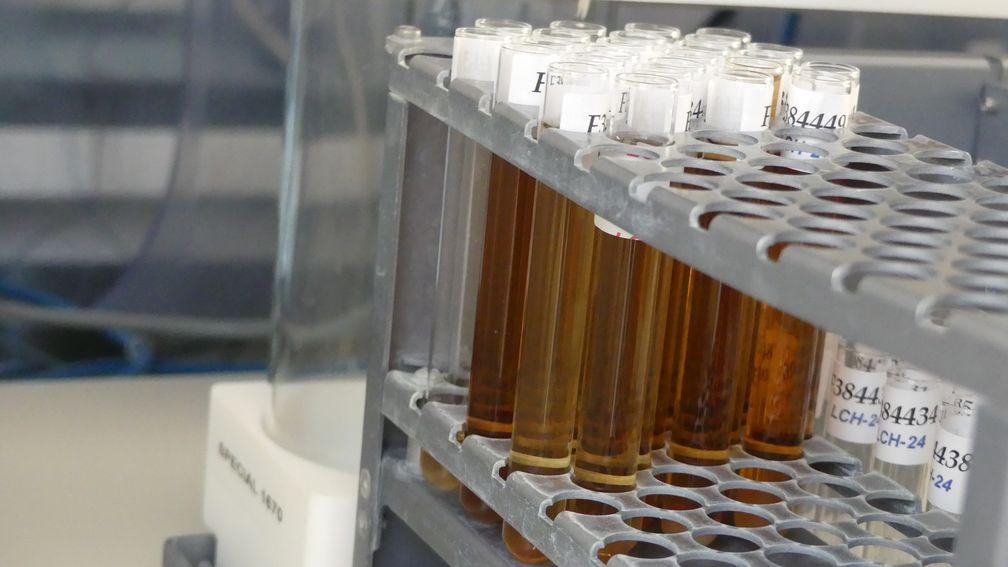- More
New front in doping war as world first leads to Longchamp disqualification
ITPP is a synthetic agent designed to boost oxygenation in the bloodstream

France has become the first racing country in the world to detect a positive for the synthetic blood agent ITPP, leading to the disqualification of a Group 1 winner from last September's Arc Trials card at Longchamp.
ITPP – or myo-inositol tryspyrophosphate – was detected in the urine sample of Akoya, winner of the Group 1 Prix Dragon for purebred arabians, and following an inquiry at France Galop headquarters in Paris last week he has been stripped of the race, while his Dutch trainer, Karin van den Bos, faces a one-year suspension.
ITPP works by binding to the membrane of red blood cells or haemoglobin, promoting the release of oxygen.
While claims of its effectiveness in both human and equine athletes are disputed by some in the scientific community, it is among the serious category of doping agents which are not allowed at any stage of a horse's life cycle, as opposed to those which have therapeutic benefit but must be absent for competition.
Van den Bos strenuously denied any accusations of wrongdoing but was unable to provide a satisfactory explanation for the presence of ITPP in Akoya's post-race sample.

The positive test was returned by French racing's LCH laboratory and confirmed by the Quantilab facility in Mauritius.
With 65 employees, LCH tests samples from around 30,000 horses across racing and trotting each year.
Laboratory director Ludovic Bailly-Chouriberry says they have been on the lookout for ITPP for some time.
"We developed the technology in 2012 and 2013 to test for ITPP, around the same time that the Hong Kong authorities were researching the subject," said Bailly-Chouriberry. "It has been used on all the samples we've received since.
"It's the first positive test for ITPP in France and I had the opportunity to raise the subject with my international colleagues during our meeting in Hong Kong in December. None of the other leading laboratories had reported a positive case."

Bailly-Chouriberry added: "Doping can be quite cyclical and you can have a spate of positives for a certain substance, then it goes out of fashion. With the advent of the internet you can order something from anywhere in the world and so all the laboratories are in frequent contact to alert one another as to the next potential threat, or of any seizures of banned substances that have taken place."
A test for ITPP is also part of British racing's armoury against any potential dopers.
According to the most recently published figures, 22 horses who raced in France during 2018 tested positive for a prohibited substance, as did a further five during routine visits to training yards. That equates to a rate of 0.23 per cent of all tests carried out.
An appeal has not yet been lodged by the connections of Akoya, whose disqualification has led to the race being awarded to the Charles Gourdain-trained Al Shamoos.
Read The Lowdown from 8.30am daily on racingpost.com and the Racing Post mobile app with all the day's latest going, weather, market moves and non-runner news
Published on inInternational
Last updated
- Skyscraper betting and soaring turnover: Japan's mind-boggling racing experience and the unlikely hero who sparked the boom
- Oisin Murphy a man in demand as revitalised Summer Cup card gives South African racing a platform to build on
- Ben Cecil, Grade 1-winning trainer and nephew of Sir Henry, dies aged 56
- Oisin Murphy: 'Billy Loughnane is the most talented rider I have ever seen at his age'
- Turffontein Summer Cup: Oisin Murphy up against Michael Roberts-trained ace See It Again on first ride in South Africa
- Skyscraper betting and soaring turnover: Japan's mind-boggling racing experience and the unlikely hero who sparked the boom
- Oisin Murphy a man in demand as revitalised Summer Cup card gives South African racing a platform to build on
- Ben Cecil, Grade 1-winning trainer and nephew of Sir Henry, dies aged 56
- Oisin Murphy: 'Billy Loughnane is the most talented rider I have ever seen at his age'
- Turffontein Summer Cup: Oisin Murphy up against Michael Roberts-trained ace See It Again on first ride in South Africa